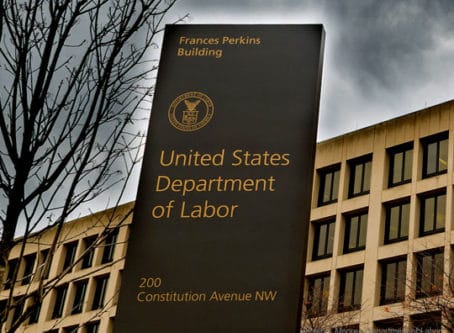Luke Hinrichs is a student at Harvard Law School.
In today’s news and commentaries, DOL obtains a federal consent decree against Tennessee sawmill for employing children as young as 13- and 14-years-old, Michigan Governor Whitmer signs legislation to restore bargaining rights to home care workers, and the all-male Chippendales Dancers seek to unionize with the Actors’ Equity Association.
The U.S. Department of Labor obtained a federal court order requiring Plateau Sawmill LLC of Clarkrange, Tennessee to stop violating federal child labor regulations, pay $73,847 in civil money penalties for their violations, and surrender $10,000 in profits earned between May 26 and June 26, 2024. Under the consent decree, the Sawmill also agreed to unannounced and warrantless inspections for five years, disciplinary sanctions for any manager responsible for child labor violations or retaliation against any employee reporting suspected violations, audit its machinery, and revise its policies and training materials. The legal action comes after the DOL’s Wage and Hour division that the Sawmill employed a 13- and 14-year-old to unload wooden boards from a conveyor belt in violation of the child labor provisions of the Fair Labor Standards Act. Investigators discovered that three children were working as early as 6 A.M., an hour earlier than the law allows.
Michigan Governor Whitmer signed 17 bills into law on October 8, 2024, including Senate Bill 790 and 791 which allow home care workers to unionize and negotiate better wages, benefits and working conditions, create a public authority to oversee the employment and support of home care workers, and expand mandatory training programs and support systems. The enactment of the home care laws results from a sustained campaign by SEIU’s Michigan Home Care Workers Association, who have been advocating for these bills for years. The legislation restores home care workers right to organize which was stripped away in 2012. Roughly 35,000 home care workers will benefit from the enacted legislation.
Dancers at Chippendales—an all-male revue in residence at The Rio in Las Vegas where the dancers perform in a $10 million custom theatre complex—are unionizing with Actors’ Equity Association as their wages, benefits, and working conditions lag behind the entertainment industry in Las Vegas. Actors’ Equity represents over 51,000 professional actors and stage managers on Broadway and in live theater. Actors’ Equity has formally requested that the employer voluntarily recognize the union representation and has also petitioned the National Labor Relations Board for an election. This unionization effort follows Actors’ Equity’s recent unionization of two strip clubs, Star Garden in Los Angeles and Magic Tavern in Portland.






Daily News & Commentary
Start your day with our roundup of the latest labor developments. See all
February 18
A ruling against forced labor in CO prisons; business coalition lacks standing to challenge captive audience ban; labor unions to participate in rent strike in MN
February 17
San Francisco teachers’ strike ends; EEOC releases new guidance on telework; NFL must litigate discrimination and retaliation claims.
February 16
BLS releases jobs data; ILO hosts conference on child labor.
February 15
The Office of Personnel Management directs federal agencies to terminate their collective bargaining agreements, and Indian farmworkers engage in a one-day strike to protest a trade deal with the United States.
February 13
Sex workers in Nevada fight to become the nation’s first to unionize; industry groups push NLRB to establish a more business-friendly test for independent contractor status; and UFCW launches an anti-AI price setting in grocery store campaign.
February 12
Teamsters sue UPS over buyout program; flight attendants and pilots call for leadership change at American Airlines; and Argentina considers major labor reforms despite forceful opposition.